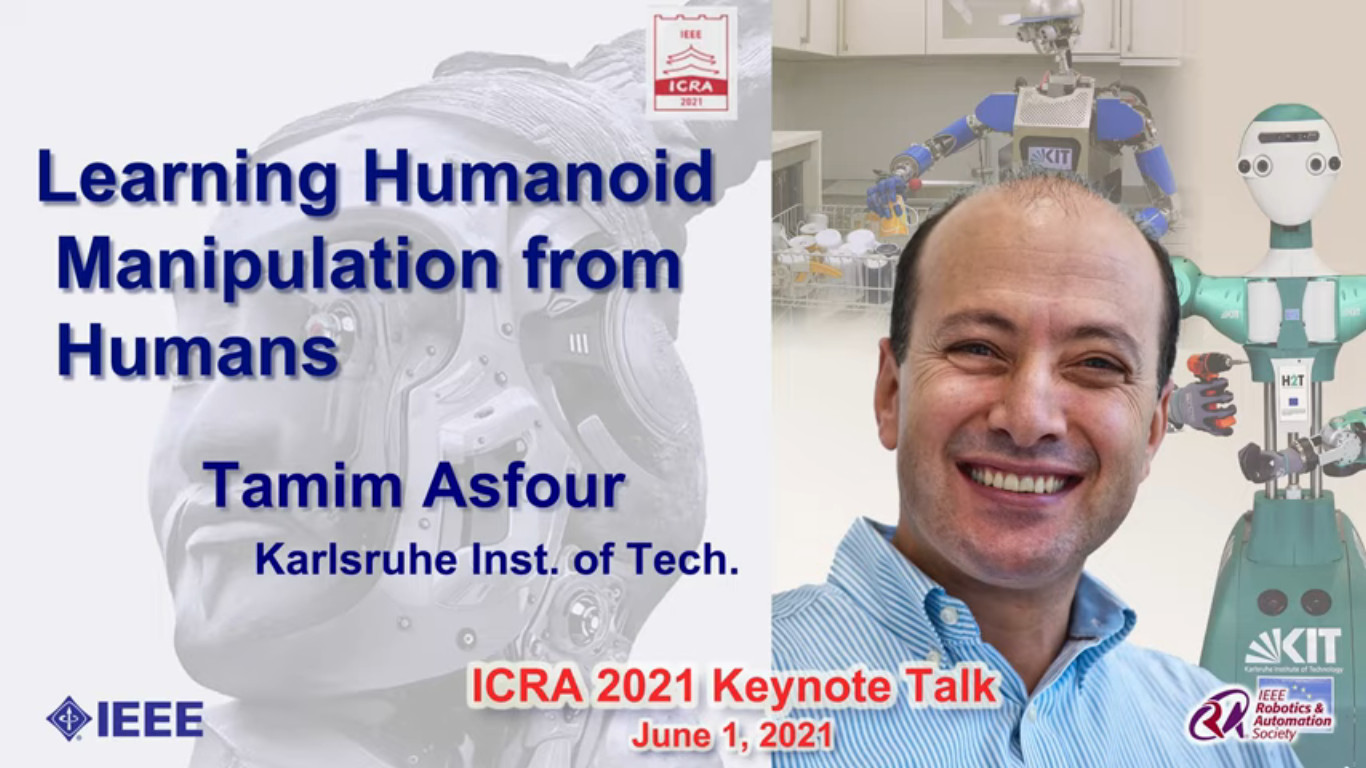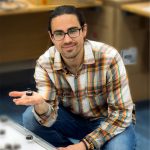
Robohub.org
Tamim Asfour’s Keynote talk – Learning humanoid manipulation from humans
by Daniel Carrillo-Zapata and IEEE Robotics and Automation Society (RAS)

Through manipulation, a robotic system can physically change the state of the world. This is intertwined with intelligence, which is the ability whereby such system can detect and adapt to change. In his talk, Tamim Asfour gives an overview of the developments in manipulation for robotic systems his lab has done by learning manipulation task models from human observations, and the challenges and open questions associated with this.
Bio: Tamim Asfour is full Professor at the Institute for Anthropomatics and Robotics, where he holds the chair of Humanoid Robotics Systems and is head of the High Performance Humanoid Technologies Lab (H2T). His current research interest is high performance 24/7 humanoid robotics. Specifically, his research focuses on engineering humanoid robot systems integrating the mechano-informatics of such systems with the capabilities of predicting, acting and learning from human demonstration and sensorimotor experience. He is developer and the leader of the development team of the ARMAR humanoid robot family.
tags: c-Research-Innovation







